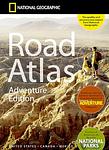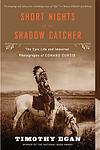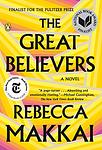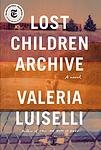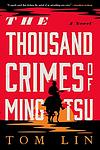Andrew Carnegie Medals for Excellence in Fiction and Nonfiction
This is one of the 284 lists we use to generate our main The Greatest Books list.
-
The Forgotten Waltz by Anne Enright
The novel is a poignant exploration of an adulterous affair set against the backdrop of the economic downturn in Ireland. It follows the story of Gina Moynihan as she reflects on her passionate, yet complicated relationship with Sean Vallely, a man she meets at a party and with whom she embarks on an affair, despite both being married to other people. The narrative delves into themes of love, desire, and the consequences of their illicit relationship, particularly in the context of Sean's ailing daughter, Evie, who becomes a symbol of the affair's impact on the families involved. The story is a candid and lyrical examination of the intricacies of marriage, memory, and the choices that shape our lives.
-
Catherine The Great: Portrait Of A Woman by Robert K. Massie
This biography provides an in-depth look at the life of the longest-reigning female leader of Russia, tracing her journey from a minor German princess to the powerful Empress of Russia. It delves into her political achievements, her efforts to modernize Russia, and her numerous romantic liaisons, all set against the backdrop of the opulence and intrigue of the 18th-century Russian court. The book paints a vivid portrait of a complex woman who wielded her intelligence and charisma to navigate the treacherous waters of court politics, expand her empire, and become one of the most influential figures in European history.
-
Canada by Richard Ford
The novel follows the story of fifteen-year-old Dell Parsons, whose life is irrevocably changed after his parents commit a bank robbery in 1960s Montana. After the heist goes awry, Dell is left to fend for himself, and he crosses the border into Saskatchewan, Canada. There, he encounters a new world of isolation and hardship, and a series of characters who will shape his understanding of life. As Dell navigates his new reality, he reflects on the events that led to his family's downfall and his own coming of age in a foreign land. The narrative is a profound exploration of destiny, self-reliance, and the indelible impact of one's family and past.
-
Short Nights Of The Shadow Catcher: The Epic Life And Immortal Photographs Of Edward Curtis by Timothy Egan
The book chronicles the remarkable journey of an intrepid photographer who dedicated his life to documenting the lives and cultures of Native American tribes at the turn of the 20th century. With a passion that bordered on obsession, he traversed the American West, capturing thousands of images and recordings that aimed to preserve the fading heritage of indigenous peoples. His monumental project was both a groundbreaking anthropological achievement and a testament to the power of photography as a means of cultural preservation. Despite facing personal and financial hardships, his work culminated in an invaluable historical record that continues to influence our understanding of Native American history and culture.
-
The Goldfinch by Donna Tartt
The book follows the life of a young boy who survives a terrorist bombing at an art museum, which kills his mother. In the confusion following the explosion, he steals a priceless Dutch painting, The Goldfinch, which becomes his secret treasure and eventually draws him into the criminal underworld. The narrative explores themes of loss, survival, and the power of art to shape human destiny.
-
The Bully Pulpit: Theodore Roosevelt, William Howard Taft, And The Golden Age Of Journalism by Doris Kearns Goodwin
This historical work delves into the vibrant era of early 20th-century America, exploring the close friendship and eventual political rivalry between two presidents, Theodore Roosevelt and William Howard Taft. It also highlights the crucial role of muckraking journalists who, with the support of Roosevelt's bully pulpit, exposed corruption and galvanized public opinion. The narrative weaves together the personal and political dynamics that shaped the Progressive Era, showcasing how these leaders and the press collectively brought about significant reforms and forever transformed the American political landscape.
-
All the Light We Cannot See by Anthony Doerr
Set during the turmoil of World War II, the novel follows the intersecting lives of a blind French girl and a German boy. The girl, living in occupied France, seeks solace in the world of books and the imagination, while the boy, a member of Hitler Youth, is a radio operator for the German forces. Their paths cross in the walled city of Saint-Malo, with the narrative exploring themes of survival, morality, and the human spirit.
-
Just Mercy by Bryan Stevenson
This book is a profound work of non-fiction that focuses on the author's experiences as a young lawyer fighting for the rights of those wrongfully convicted or excessively punished. The narrative primarily revolves around the case of a black man sentenced to death for a crime he didn't commit. The author not only exposes the inherent racial bias and systemic flaws in the American criminal justice system, but also provides a compelling argument for compassion in the pursuit of justice.
-
The Sympathizer by Viet Thanh Nguyen
"The Sympathizer" is a gripping spy novel set during the Vietnam War. The protagonist is a half-French, half-Vietnamese army captain who is a communist double agent. After the Fall of Saigon, he moves to America with other South Vietnamese refugees and struggles to reconcile his dual loyalties as he continues to spy on his fellow countrymen in exile. The novel explores themes of identity, war, and politics, while providing a unique perspective on the Vietnam War and its aftermath.
-
Hold Still: A Memoir With Photographs by Sally Mann
In "Hold Still: A Memoir With Photographs," the author delves into the rich tapestry of her life, intertwining personal narrative with evocative photography to explore themes of family, mortality, and the storied landscape of the American South. Through a collection of intimate snapshots, candid anecdotes, and unearthed family history, the memoir offers a profound reflection on the power of memory and artistry. It reveals the complexities of the author's relationships and her experiences as an artist, while confronting the controversies that have often surrounded her work. The book stands as a poignant testament to the enduring impact of heritage and the transformative nature of photography.
-
The Underground Railroad by Colson Whitehead
This novel follows the journey of Cora, a young slave on a cotton plantation in Georgia, who escapes and embarks on a journey towards freedom via the Underground Railroad. The book presents a literal version of the historical Underground Railroad, portraying it as a physical network of tunnels and tracks beneath the Southern soil. As Cora travels from state to state, she encounters different worlds and harsh realities, each one illuminating the various forms of oppression Black people faced in America. The narrative is a brutal exploration of America's history of slavery and racism, and a testament to the unyielding spirit of those who fought against it.
-
Evicted: Poverty and Profit in the American City by Matthew Desmond
This book provides an in-depth look at the housing crisis in America, focusing on eight families in Milwaukee who are struggling to keep a roof over their heads. The author explores the role of eviction in perpetuating poverty, illuminating the business of landlords and the harsh reality of tenants in impoverished neighborhoods. The book offers a close examination of the intersection between profit and poverty, revealing how both are intricately linked in the American housing market.
-
Manhattan Beach by Jennifer Egan
Set against the backdrop of the Great Depression and World War II, the novel follows the life of a young woman who becomes the first female diver to repair ships at the Brooklyn Naval Yard, where her father once worked before his mysterious disappearance. As she grows into her new role, she is drawn into a complex web of underworld figures, sailors, and her father's past, all of which converge to reveal profound truths about her family and the larger world around her. The story is a rich tapestry of a bygone New York, exploring themes of resilience, the impact of war, and the quest for self-discovery amidst the tides of history.
-
The Great Believers by Rebecca Makkai
"The Great Believers" by Rebecca Makkai is a powerful novel that tells the story of two interconnected groups of people: a group of gay men in 1980s Chicago during the height of the AIDS epidemic, and a woman in 2015 who is searching for her estranged daughter in Paris. The novel explores themes of love, loss, friendship, and the devastating impact of the AIDS crisis. Makkai's writing is both heartbreaking and hopeful, and she skillfully weaves together the two timelines to create a poignant and unforgettable story.
-
Heavy: An American Memoir by Kiese Laymon
This memoir is a profound exploration of the author's life as a Black man in America, grappling with the complex intersections of weight, identity, and societal expectations. Through a narrative that is both deeply personal and universally resonant, the author confronts the burdens of his own body, the fraught relationship with his mother, and the struggles with gambling, violence, and education. The book is a raw examination of the ways in which both personal and cultural history shape our bodies and our lives, and how the weight of carrying these stories can be both a source of immense strength and a heavy, often unbearable, load.
-
Lost Children Archive by Valeria Luiselli
"Lost Children Archive" by Valeria Luiselli is a novel that follows a family on a road trip from New York to Arizona. The parents are documentarians and are working on separate projects, while the children are preoccupied with their own interests. As they travel, the family becomes increasingly aware of the migrant crisis and the children's obsession with finding lost things takes on a new meaning. The novel explores themes of family, identity, and the power of storytelling.
-
Midnight In Chernobyl by Adam Higginbotham
"Midnight In Chernobyl" is a non-fiction book that tells the story of the 1986 Chernobyl nuclear disaster. The book provides a detailed account of the events leading up to the explosion, the immediate aftermath, and the long-term effects of the disaster. It also explores the political and social context of Soviet Ukraine at the time, and the impact that the disaster had on the country and the world. The book draws on interviews with survivors, officials, and experts, as well as archival documents and scientific research, to provide a comprehensive and compelling narrative of one of the worst nuclear accidents in history.
-
Deacon King Kong by James McBride
"Deacon King Kong" by James McBride is a novel set in 1969 Brooklyn, where a drunken Deacon Sportcoat shoots a drug dealer named Deems Clemens in the courtyard of the Cause Houses housing project. The shooting sets off a chain of events that brings together a cast of characters from the neighborhood, including a young drug dealer, a church-going widow, a corrupt cop, and a group of elderly church women. Through their perspectives, McBride explores themes of race, religion, and community in a vibrant and humorous tale.
-
Fathoms: The World In The Whale by Rebecca Giggs
"Fathoms: The World In The Whale" is a profound exploration of the relationship between humans and whales, delving into the history, mythology, and biology of these majestic creatures. The book weaves together environmental and cultural narratives, examining the impact of human activity on whales and their habitats, while also reflecting on what whales signify in our collective imagination. Through lyrical prose, the author invites readers to consider the ethical dimensions of wildlife conservation, the consequences of climate change, and the intricate connections between the natural world and human society, all through the lens of the awe-inspiring presence of whales in our oceans.
-
The Thousand Crimes Of Ming Tsu by Tom Lin
Set in the American West during the era of the transcontinental railroad, this novel follows the story of a Chinese-American assassin, Ming Tsu, who was forcibly taken from his homeland and trained by a crime boss. After falling in love and marrying a woman against the wishes of his boss, Ming is separated from his wife and sent to work on the railroad. He escapes and embarks on a quest for vengeance against the men who wronged him, using his lethal skills to exact justice. Along the way, he gathers a posse of outcasts, and together they navigate the harsh realities of a landscape marked by violence and racism. The narrative weaves elements of Western genre with magical realism, exploring themes of love, revenge, and the search for redemption in a lawless land.
-
A Little Devil In America: In Praise Of Black Performance by Hanif Abdurraqib
The book is a profound reflection on the history and impact of Black performance in the United States, weaving personal anecdotes with cultural criticism to explore how Black artists have shaped and been shaped by American culture. It delves into various forms of performance, from music to dance to sports, examining the joy, pain, and complexity of Black performance and its role in resistance and celebration. The author pays homage to iconic figures and moments while also highlighting the often overlooked contributions of everyday performers, creating a rich tapestry that honors the depth and resilience of Black artistry.
-
The Swimmers by Julie Otsuka
The book is a poignant exploration of community, memory, and the human condition, centered around a group of swimmers who find solace and connection in their local underground pool. When a crack appears in the pool's bottom, the swimmers are dispersed, and the narrative shifts focus to one of them, a woman succumbing to dementia. As her memory deteriorates, the story delves into her past and the experiences of her Japanese American family, touching on themes of displacement, identity, and the enduring impact of internment during World War II. The narrative weaves together the collective and personal, creating a tapestry of lives affected by loss, change, and the relentless passage of time.
-
An Immense World by Ed Yong
"An Immense World" is a collection of science essays written by Ed Yong, a science journalist. The book explores a wide range of scientific topics, from the behavior of animals to the complexities of the human microbiome. Yong's writing is accessible and engaging, making complex scientific concepts easy to understand for readers of all backgrounds. The essays are thought-provoking and provide a glimpse into the fascinating world of science. Overall, "An Immense World" is a must-read for anyone interested in science and the natural world.
Andrew Carnegie Medals for Excellence, 23 Books
The Andrew Carnegie Medals for Excellence in Fiction and Nonfiction, established in 2012, recognize the best fiction and nonfiction books for adult readers published in the U.S. in the previous year and serve as a guide to help adults select quality reading material. They are the first single-book awards for adult books given by the American Library Association and reflect the expert judgment and insight of library professionals who work closely with adult readers.
Added 4 months ago.
This list has a weight of 36%. To learn more about what this means please visit the Rankings page.
Here is a list of what is decreasing the importance of this list:
- List: only covers 1 year (yearly book awards, best of the year, etc)
- Voters: are mostly from a single country/location
If you think this is incorrect please e-mail us at [email protected].


